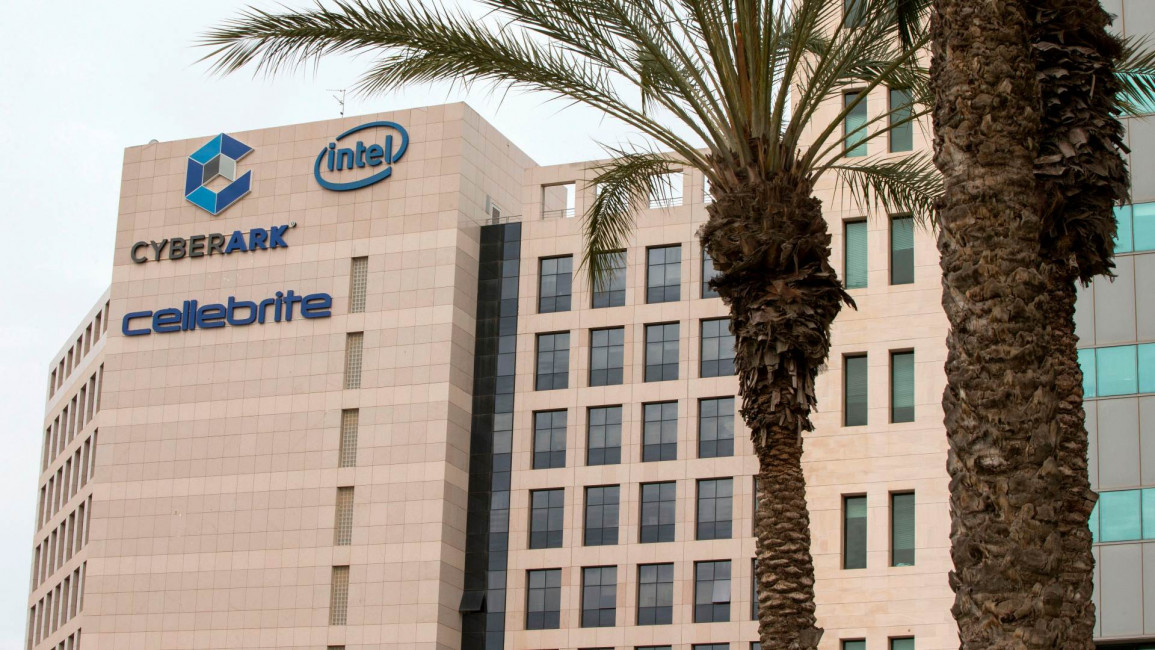Digital rights groups urge US to block Israeli surveillance firm's stock exchange plans
Digital rights groups urged US regulators and investors on Tuesday to block plans by surveillance technology company Cellebrite to go public on the Nasdaq stock exchange, saying the Israeli firm continues to sell tools to repressive governments.
Cellebrite supplies digital forensic tools that can extract data from cell phones, and its technology is widely used by law-enforcement agencies around the world.
In April, the company announced it would go public through a merger with a blank-check firm, valuing the equity of the combined company at about $2.4 billion.
But in an open letter to the US Securities and Exchange Commission (SEC) and investors, digital rights groups urged all "parties to halt this deal until Cellebrite demonstrates that it has taken sufficient measures to comply with human rights".
The coalition of organisations said the company "continues selling its products to repressive regimes" and had failed to properly disclose the potential risks to investors from the human rights abuses some of its customers are linked to.
"Multiple actors must cobble together their power to protect human rights. The SEC, Nasdaq, investors, and policymakers all have roles to play," said Hinako Sugiyama, a legal fellow with Access Now, a digital rights group leading the effort.
A Cellebrite spokesperson said the company has "strict licensing policies and restrictions that govern how customers may utilize our technology" and considers "a potential customer's human rights record and anti-corruption policies".
The company's SEC filing says it does not do business with Belarus, China, Hong Kong, Macau, Russia and Venezuela, "partially due to concerns regarding human rights and data security".
Last year, Cellebrite said it would no longer sell to Hong Kong and China after its technology was used by police to hack into the phones of opposition figures and demonstrators. In 2021, it halted sales to Russia and Belarus.
Major consequences?
Environmental groups have often protested against IPOs (initial public offerings) by mining and oil companies, but opposing a technology firm's record on digital rights issues is unusual, said Israeli human rights lawyer Eitay Mack.
"Everyone is holding their breath to see what is happening with the Cellebrite IPO," he said, adding that it could have a significant impact on stock market operations by other firms linked by critics to digital rights abuses.
"This could have major consequences," he added.
US Congressman Tom Malinowski raised questions last month about Cellebrite's Nasdaq plans, telling regulators and potential investors the company had a record of selling tools to "the most repressive security forces around the world".
"If industry doesn't self-regulate, Congress will need to impose stronger requirements on the SEC to police these kinds of listings," Malinowski said this week.
Tuesday's letter said Cellebrite's sales of surveillance tools were still "enabling detentions, prosecutions, and harassment of journalists, civil rights activists, dissidents, and minorities around the world".
The letter was signed by Access Now, the Electronic Frontier Foundation, Privacy International and dozens more digital rights groups.
Jonathan Rozen, a senior Africa researcher at the Committee to Protect Journalists, said Cellebrite's tools are used "in numerous countries whose security forces have seized and searched journalists' phones or computers, and committed other abuses".
Last month, the lawyer Mack wrote to Cellebrite and Israel's defence ministry - which oversees surveillance exports - to urge the company not to sell products to Vietnam's Ministry of Public Security in Vietnam due to human rights concerns.
Cellebrite did not immediately respond to a request for comment about its business activities in Vietnam or Africa.
"Their client list is a real problem," Mack said.
(Reuters)



